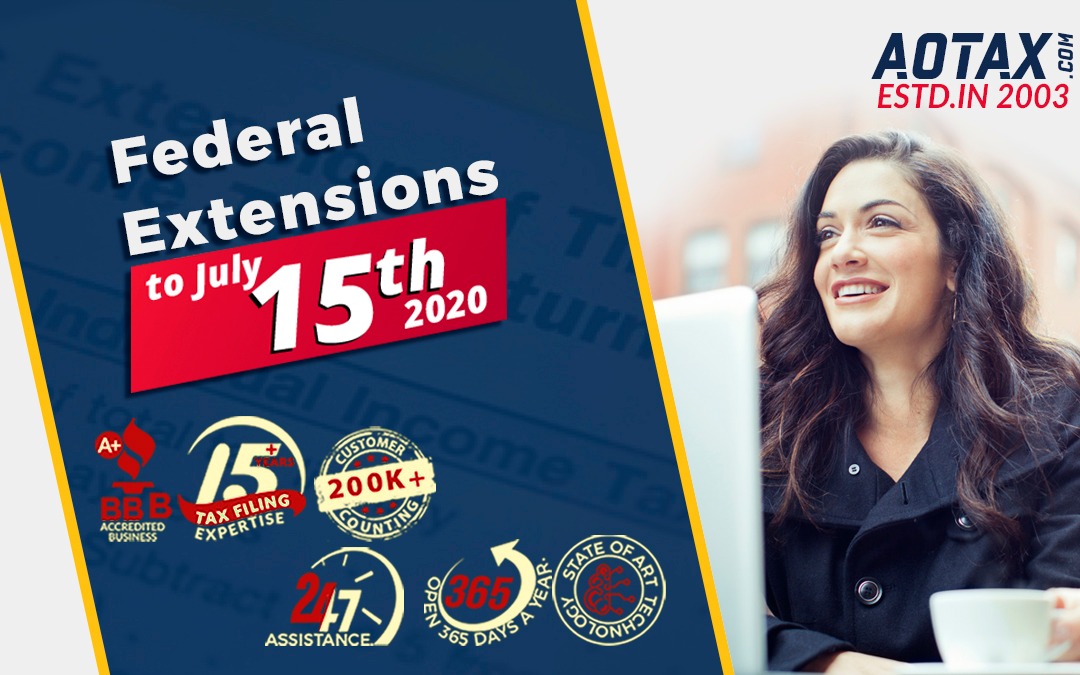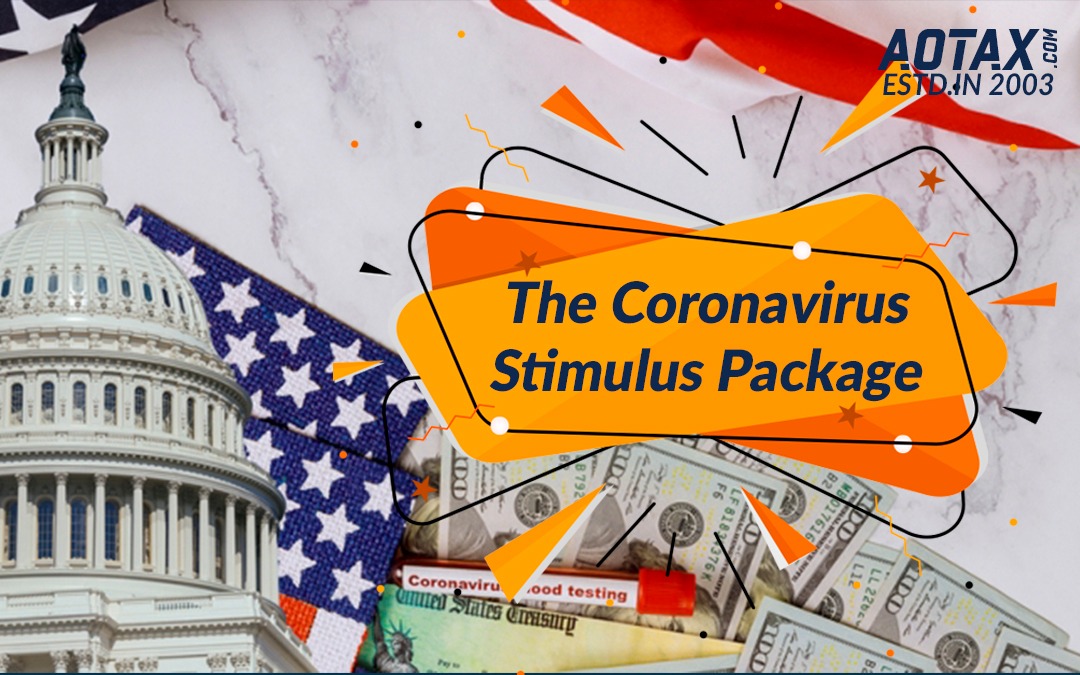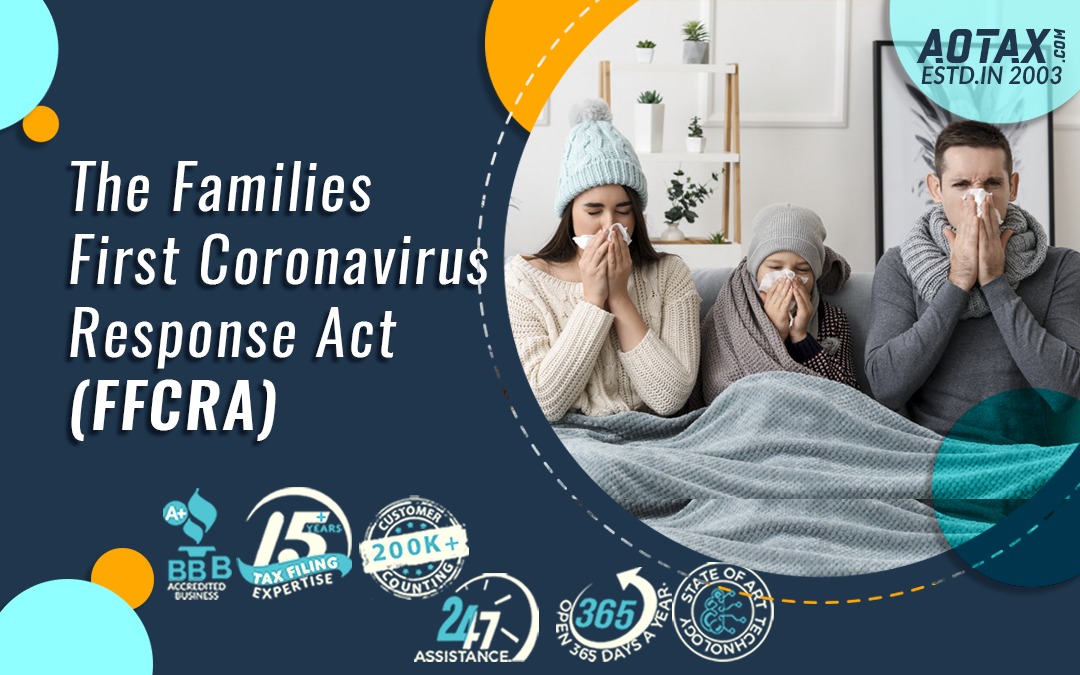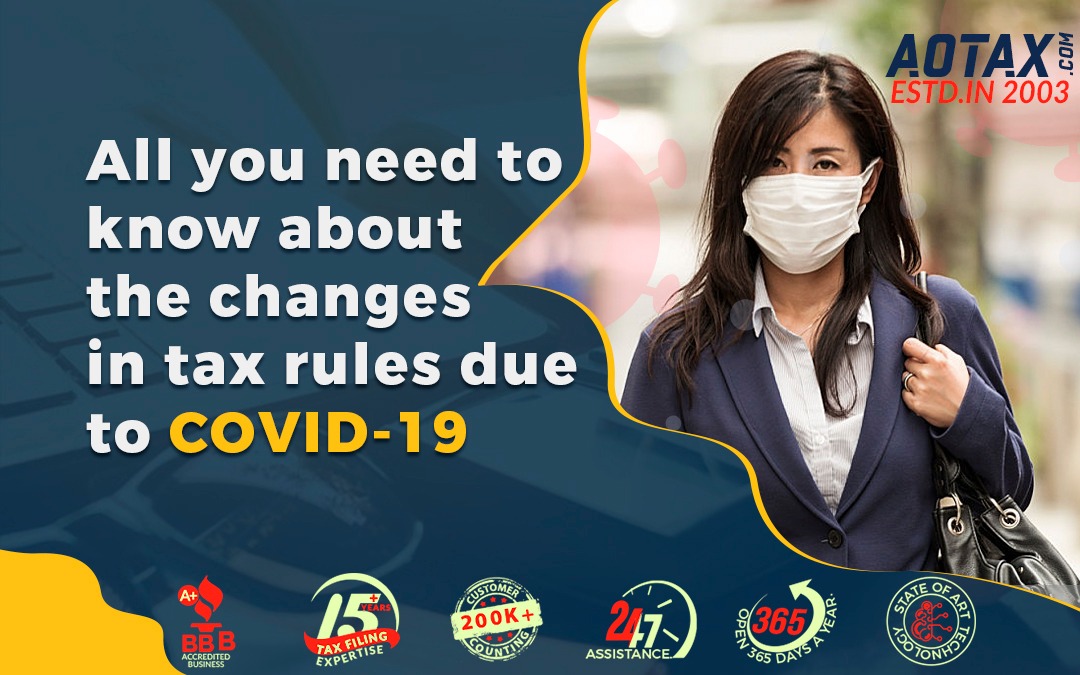All you need to know about the changes in tax rules due to COVID-19
On 13th March 2020, the US President had issued an emergency declaration in response to the ongoing COVID-19 pandemic. Due to COVID-19 the tax Rules have changed Since the outbreak of COVID-19 has caused huge harm to individuals and businesses, the Federal Government and the State Government have responded very promptly by making significant changes to the tax laws.

FEDERAL EXTENSIONS: The IRS has announced for the extension of both tax payment and tax return filing deadline for several taxpayers including individuals, business entities, trust, etc. The tax payment and return filing deadline has been extended to 15th July 2020 which would have been 15th April 2020 otherwise. There would be a waiver of interest and late filing penalties for this extension of these 90 days. This relief applies to a taxpayer’s 2019 income tax liability and the estimated income tax payments for the first quarter of 2020.

STATE EXTENSIONS: Although the tax implications and timelines are different for the states, still a majority of the states have extended their tax return filing and payment deadlines following that of the federal guidelines. However, there might be some states which have responded to this deadline extension separately. State responses to the tax deadline extension might apply to other categories of taxes as well apart from Income tax.

THE CORONAVIRUS STIMULUS PACKAGE: On 27th March 2020, the US President had signed an Act known as CARES i.e. Coronavirus Aid, Relief and Economic basis Security Act. This Act has been transformed into law which ensures a $2 trillion stimulus package. This will help in providing financial relief to business entities, individual taxpayers and even families. Also, by the coronavirus stimulus package taxpayers can avail of the benefits of advanced tax rebates.The taxpayers can receive stimulus checks up to $1,200 for individual taxpayers.
Joint taxpayers would receive stimulus checks up to $2,400 and an additional check of $500 in case of each qualifying child. The payment of this stimulus checks associated with COVID-19 would be done based on tax filings that have been done in 2018 or 2019. If a taxpayer has not yet filed the tax returns, then the information of 2018 would be used. The amount which would be paid now would be reconciled in the tax return of the next year depending on the 2020 situation.
Moreover, the CARES Act also allows the Government to grasp the information of direct deposit in the income tax return filing of 2019 or the tax return 2018. This would help deposit the funds in the stimulus package directly into the taxpayer’s account by electronic means.
So, in the present situation, it is advisable to file for 2019 tax returns soon and select to obtain the refunds by direct deposit method. By this, the IRS would be able to have the current tax filing information and direct deposit information which would help in the transfer of the stimulus amount conveniently.

The FAMILIES FIRST CORONAVIRUS RESPONSE ACT (FFCRA):
President Trump has signed the Families First Coronavirus Response Act into Law which would be effective from no later than 2nd April 2020. According to the guidelines of this Act, employers who have an employee count of less than 500 ought to provide their employees with paid sick leave and expanded Family and Medical Leave Act (FMLA) rights and free testing for COVID-19.
- This Act also helps in providing two refundable payroll tax credits which would help the businesses to make up for the cost incurred with the mandated paid leaves. The eligible employers can claim both the credits in amounts that are equal to 100% of the amount of family leave wages which are paid under the FFCRA.
- Employers need to offer paid sick leave tax credit and paid family leave or “Child Care Leave” Tax credit. Self-employed individuals or small business owners are required to offer paid sick leave for those employees who are unable to work due to COVID-19 and would also receive sick leave tax credit which is equal to 100% of the wage amount paid. This amount of credit has been limited to $200 per day if the employee is not able to work if he is taking care of a minor child after the closure of his school or an individual under the self-isolation order.
- Employers can also obtain refundable family leave tax credit for the wages that are being paid to the employees who are unable to work as they are taking care of a minor child. The school or child care center of the minor is closed due to the outbreak of COVID-19.
Conclusion
Hence, in these difficult times of national emergency, these changes introduced by the US Government would be highly beneficial for all the taxpayers as it would mitigate the impact of COVID-19 on individuals as well as business entities.
References
https://blog.turbotax.intuit.com/tax-news/is-the-tax-deadline-delayed-what-to-know-about-coronavirus-covid-19-and-your-taxes-46320/


Recent Comments